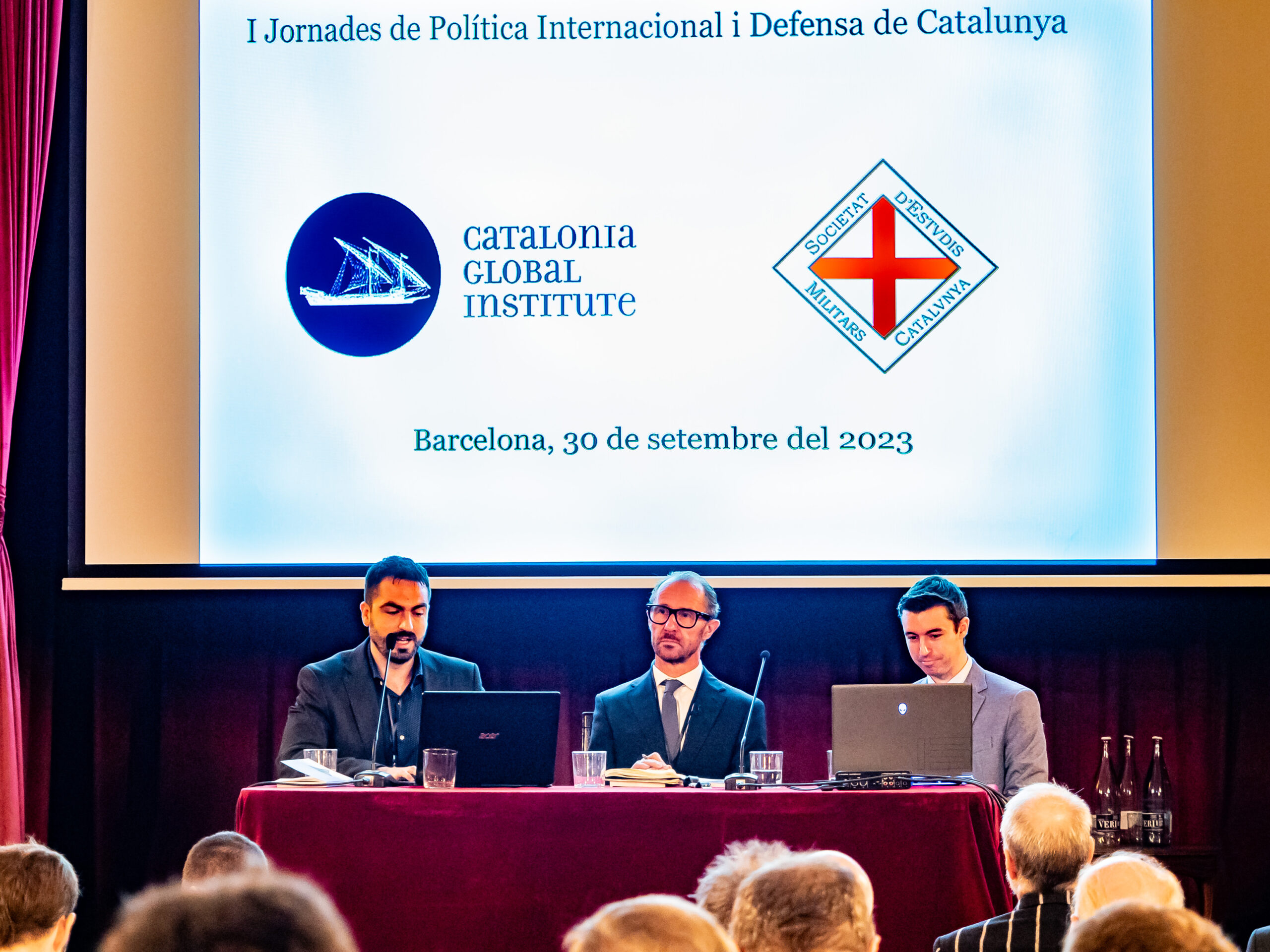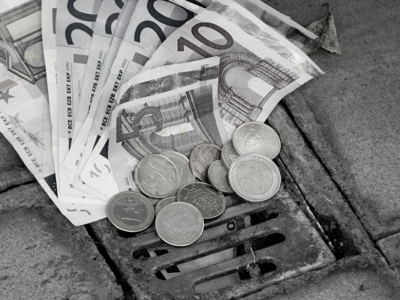Success of the First Conference on International Politics and Defense of Catalonia

10/10/2023
On Saturday, September 30th, the Catalonia Global Institute and the Military Studies Society organized the First Conference on International Politics and Defense of Catalonia, with the aim of generating analysis and debate on these issues from a nationally focused perspective.
The event brought three renowned international speakers to Barcelona. Professor Matt Qvortrup, a specialist in referendums and self-determination processes, Mr. Dimitrij Rupel, former Minister of Foreign Affairs of Slovenia and one of the main protagonists of that country’s independence process at the beginning of the nineties, and Professor Andrew Lambert from the War Studies Department at King’s College London, one of the world’s most renowned experts in grand strategy and naval history.
As part of the conference, representatives of the two entities and the attending public were able to talk and debate with the speakers during three sessions that took place at the Real Cercle Artístic de Barcelona. The conference opened with a presentation of the event by Pol Molas of the Military Studies Society and Miquel Vila from the Catalonia Global Institute. Vila remarked that the intention of the conference is to “give Catalonia access to tools to build a solid, mature and nationally centered thinking on international politics and defense, and with a broader view, contribute to a profound ideological change within Catalan nationalism.”

During the first panel of the conference, Professor Matt Qvortrup presented his book I Want to Break Free: A Practical Guide to Making a New Country, which deals with the political, legal, and cultural aspects of independence processes. During his session, Qvortrup recounted various cases based on his experience as an advisor to self-determination movements and Western governments, as well as a mediator in conflicts within the scope of various international organizations.

Qvortrup advised that any independence movement must have a “Machiavellian” attitude, that is to say, to know how to combine its interests with those of the countries from which it wants to obtain some kind of support. He remarked that it is necessary to work to get the support of “important people, in high places,” referring to capturing the interests of the great powers, using the United States as an example.
In the second session, the former Slovenian Foreign Minister, Dimitrij Rupel, recounted the actions carried out in the months prior to that country’s declaration of independence and in the days following when Slovenia had to face the Yugoslav army. The presentation emphasized the initial positions of the Slovenians’ international interlocutors, especially the European powers and the United States, who not only advised against the independence path but threatened to deny recognition of the new state. In this sense, the former Slovenian Foreign Minister mentioned that his international interlocutors complained that the Slovenians were acting unilaterally, to which he replied, “of course we acted unilaterally!”

In the third session, Professor Andrew Lambert reviewed the common characteristics of the maritime powers and expanded on how Catalonia, with conditions of territory and population similar to other sea-faring countries, was in a position to revive its maritime tradition and make it a central aspect of its geopolitical strategy.

Lambert emphasized the importance of culture in a country’s strategic thinking as well as the role of history: “accurate history brings sound strategy. Poor history brings poor strategy”.
In the closing comments, Pol Molas, and Abel Riu of the Catalonia Global Institute reviewed the key remarks of the day, emphasizing the need to claim and build national Catalan thought focused on international politics and defense. Riu stressed that when dealing with international actors, it is crucial to “connect the reality on the ground with the demands that are made of them. If the situation on the ground advances in a direction favorable to national self-determination, the external actors will adapt to the new reality.”

The event filled the room of the Real Cercle Artístic with a hundred people throughout the day and had the presence among the attendees of a delegation of members of the British Parliament, members of the All-Party Parliamentary Group on Catalonia, specifically Douglas Chapman and Joanna Cherry of the Scottish National Party, Hywel Williams of Welsh nationalist Plaid Cymru, and Pauline Latham of the Conservative Party
The Catalonia Global Institute is an international affairs analysis center whose aim is to equip Catalan society with nationally centered ideas on global politics. The Military Studies Society is an organization dedicated to generating knowledge on defense policy at the service of the Catalan national interest.
Pictures: Josep-Lluís González


